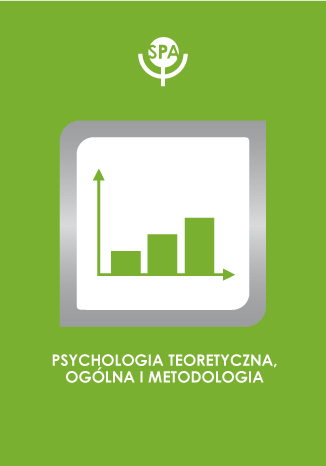Array
(
[id] => 461
[date] => 2019-03-15
[doi] =>
[title] => Panorama psychologii w Polsce po II wojnie światowej, ze szczególnym akcentem na pierwsze dekady okresu powojennego
[title_en] => THE PANORAMA OF PSYCHOLOGY IN POLAND AFTER THE SECOND WORLD WAR: EMPHASIS ON THE FIRST DECADES OF THE POST-WAR PERIOD
[authors] => Jan Strelau
[abstract] => During the first decade after the Second World War, especially the so-called Stalinist period (1948-1956), Polish people experienced extreme physical, political and intellectual deprivation due to the Soviet regime, which – with lowering impact – lasted until the end of 1989. Such circumstances influenced essentially the destiny of Polish universities, research institutes and conditions of academic activity and this is also true for psychology. The paper describes in details the restrictions, and restraints on the development of Polish psychology – academic and applied – due to harmful decisions of the Polish Government being under strong influence of the Soviet Union. The status and achievements of psychology (academic and applied) has essentially changed the panorama of this discipline in our country, particularly when one contrasts the 1950s to the first decade of the 21st century. After the political and economical transition taking place at the turn of 1989-1990 Polish psychology has made a milestone progress. This is especially evident when taking into account the number of universities offering studies in psychology, the number of students being enrolled every academic year, the quality of curriculum, as well as the number and quality of publications and research projects.
[abstract_en] => During the first decade after the Second World War, especially the so-called Stalinist period (1948-1956), Polish people experienced extreme physical, political and intellectual deprivation due to the Soviet regime, which – with lowering impact – lasted until the end of 1989. Such circumstances influenced essentially the destiny of Polish universities, research institutes and conditions of academic activity and this is also true for psychology. The paper describes in details the restrictions, and restraints on the development of Polish psychology – academic and applied – due to harmful decisions of the Polish Government being under strong influence of the Soviet Union. The status and achievements of psychology (academic and applied) has essentially changed the panorama of this discipline in our country, particularly when one contrasts the 1950s to the first decade of the 21st century. After the political and economical transition taking place at the turn of 1989-1990 Polish psychology has made a milestone progress. This is especially evident when taking into account the number of universities offering studies in psychology, the number of students being enrolled every academic year, the quality of curriculum, as well as the number and quality of publications and research projects.
[keywords] => Polish psychology, post-war period, panorama changes
[keywords_en] => Polish psychology, post-war period, panorama changes
[file_path] => /files/articles/2010-16-panorama-psychologii-w-polsce-po-ii-wojnie-wiatowej_-ze-szczeglnym-akcentem-na-pierwsze-dekady-okresu-powojennego.pdf
[okladka] => psychologia_teoretyczna_ogolna_i_metodologia.jpg
[rocznik] => Rocznik: 2010 Tom: 16 Numer: 1
[strony] => 7-19
)










 Pobierz pełny tekst
Pobierz pełny tekst



